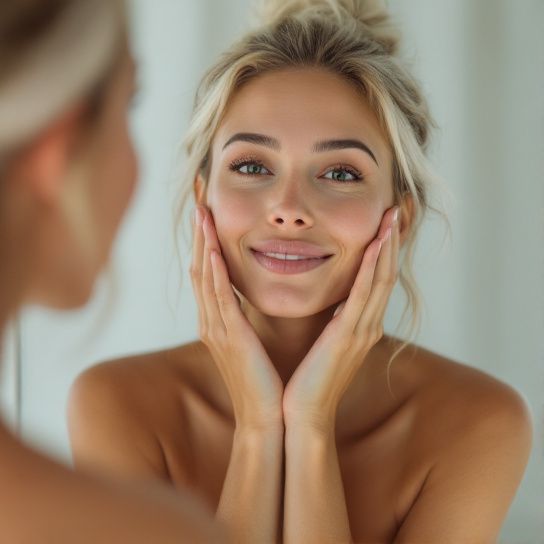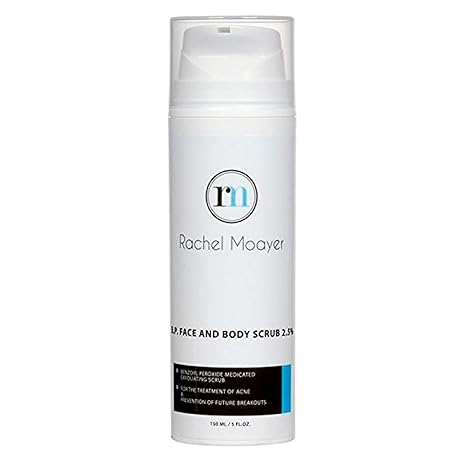Have you ever noticed those annoying breakouts that seem to pop up right around a big event? You’ll find yourself in the mirror, half-wondering if your skin is out to sabotage you. If these untimely eruptions seem to sync up suspiciously well with your cycle or a stressful time, you might be dealing with hormonal acne. It’s more common than you might think, and I’m here to share some simple remedies for hormonal acne that might make a real difference.
Why Does Hormonal Acne Happen?
Okay, so here’s the deal. Hormonal acne is, like the name suggests, caused by fluctuations in hormones. These tricky levels can wreak havoc, especially around the time before your period or during puberty, pregnancy, or even menopause. What happens is that the increased hormones can cause your glands to produce more oil, which clogs those oh-so-sensitive pores, leading to breakouts.
And the fun part? Hormones are barely ever in a mood to be consistent. But hey, that doesn’t mean your skin’s fate is sealed with zits and blackheads.
Get to Know Your Skin
Before diving into remedies, let’s take a moment to understand your skin better. Hormonal acne usually appears on the lower part of your face—think jawline, chin, and lower cheeks. They’re often deep, cystic, and can hang out for quite a while.
Now, I’m not a fan of complicating things, especially when your skin’s stabbing you in the back. But figuring out your skin type and problem areas will help when we talk about simple remedies for tackling these unwelcome guests. So, next time you’re freaking out in front of the mirror, relax and let’s approach this logically.
Diet and Hormonal Acne: Good Food = Good Skin

One of the first steps towards calming those hormonal hurricanes on your face is to sharpen your focus on food. Foods that mess with your blood sugar levels, like those sugary delights and white breads, can spike insulin. Higher insulin levels may lead to increased sebum production—and you know where that road leads.
Give This a Try:
- Low-Glycemic Diet: Fill your plate with lentils, veggies, and whole grains. Your skin will thank you.
- Omega-3 Fatty Acids: Walnuts, flaxseeds, and fatty fish like salmon can help reduce inflammation.
- Antioxidants: Foods rich in antioxidants, like berries and leafy greens, help fight oxidative stress on your skin.
Trust me on this, while ditching that candy bar seems harsh, your skin will surely reward your dedication.
Stress Less to Help Your Skin
Stress is one of those sneaky culprits contributing to hormonal acne. Those long work hours or an endless list of to-dos can release cortisol, the stress hormone. Cortisol, in its wisdom, decides to stir up oil production. Fantastic, right?
Chill Out Suggestions:
- Meditation and Yoga: These may sound cliché, but a few minutes a day can lower your stress and calm your skin.
- Adequate Sleep: Aim for 7-8 hours to reset your body and give your skin a chance to recover.
Honestly, between us, learning to handle stress might not only make your skin clearer but also nurture your soul.
Clean Skin = Happy Skin

Alright, while it seems obvious, a good skincare routine is essential. But don’t panic—complex 10-step rituals aren’t what I’m going for. Simplicity can often be just as effective, if not more.
Skincare Checklist:
- Gentle Cleanser: Opt for sulfate-free cleansers that won’t strip your skin.
- Non-comedogenic Moisturizer: Keeps moisture locked in without clogging pores.
- Salicylic Acid or Retinoids: Perfect partners in keeping breakouts at bay.
Remember to patch-test new products in case your skin says, “Whoa, not today!”
Teas, Tinctures, and Supplements
Natural remedies have their place in the fight against hormonal acne. You’ve got more tricks up your sleeve than you might realize.
Home Remedies:
- Spearmint Tea: Studies suggest it might help reduce inflammation and balance hormones.
- Zinc Supplements: Known for potentially reducing inflammation—but consult your doc first.
- Vitex (Chaste Tree Berry): Some people use this supplement to balance hormones, but professional guidance is recommended.
Let’s just say these tried-and-true methods have been whispered about by more than a few people dealing with similar skin woes.

Lastly, Hydration Station
Never underestimate the power of water. Adequate intake helps your body flush out toxins that can affect your skin.
Staying Hydrated:
- Water: Aim for eight glasses a day. It’s more influential than you think.
- Herbal Teas and Infusions: Another way to gently increase hydration while offering skin-loving benefits.
When It’s Time to See A Doctor
Sometimes, we all need a little extra backup in our corner. If over-the-counter remedies and lifestyle changes aren’t making a difference, it could be time to check in with a dermatologist. They can offer prescription-strength solutions for cases that don’t respond to simpler measures.
Prescription treatments like spironolactone or oral contraceptives can sometimes offer the hormonal help needed, or antibiotics and stronger retinoids might help clear your skin.
Circle Back: Confidence and Compassion
Let’s draw things to a soft close. Hormonal acne can feel like a relentless adversary, chipping away at self-esteem and confidence. But armed with simple remedies for hormonal acne—diet changes, stress management, effective skincare—you can tackle it. Just remember to be kind to yourself. Skin health journeys can be non-linear, filled with ups and downs.
Real talk? No magic wands will give you skin like a serene Instagram fairy overnight. It takes time, effort, and sometimes a little trial and error. But with patience and the right tools, you can lessen and manage the chaos. Treat yourself and your skin with the care and compassion you’d offer to a friend in need. You’ve got this.
Frequently Asked Questions
What are the primary causes of hormonal acne?
Hormonal acne is primarily caused by an imbalance of hormones, particularly an increase in androgen levels and a decrease in estrogen levels. This imbalance can lead to increased sebum production, clogged pores, and subsequent acne breakouts. It often occurs during periods of significant hormonal changes, such as puberty, menstruation, pregnancy, and menopause[3][4][5).
What dietary changes can help manage hormonal acne?
A healthy diet can play a crucial role in managing hormonal acne. It is recommended to avoid foods high in saturated fats, processed grains, meat fats, and refined sugar, as these can cause an imbalance in hormone levels. Instead, focus on a diet rich in fresh vegetables, fruits, fish, fiber, and antioxidants. Foods high in omega-3 fatty acids, such as salmon, can also be beneficial[1][4][5).
What natural supplements can help treat hormonal acne?
Several natural supplements can help treat hormonal acne. Vitex (Chasteberry) is effective in balancing hormone levels by increasing progesterone and mildly inhibiting the release of follicle-stimulating hormone (FSH). Saw Palmetto acts as a natural androgen reducer, and Omega-3 fatty acids help soothe the body’s inflammatory response and balance acne-causing hormones[1][2).
What home remedies can be used to treat hormonal acne?
Several home remedies can help treat hormonal acne. Tea tree oil, due to its antibacterial and anti-inflammatory properties, can reduce acne sores and inflammation. Other remedies include using aloe vera, green tea, jojoba oil, and argan oil, which help in balancing sebum production and reducing inflammation[2][4]).
References




